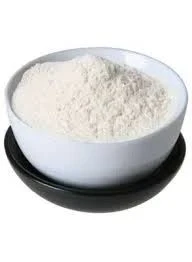
Nov . 08, 2024 06:31 Back to list
Exploring the Applications and Benefits of Methyl Hydroxyethyl Cellulose in Various Industries
The Versatile Role of Methyl Hydroxyethyl Cellulose in Modern Applications
Methyl Hydroxyethyl Cellulose (MHEC) is a derivative of cellulose, one of the most abundant natural polymers on Earth. MHEC has gained significant attention in various industrial applications due to its unique properties, making it an indispensable ingredient in numerous products, from construction materials to personal care items.
What is Methyl Hydroxyethyl Cellulose?
MHEC is a water-soluble polymer obtained from the natural polymer cellulose, which is sourced from plant materials. The methyl and hydroxyethyl groups are introduced through a chemical modification process that enhances its solubility and functional properties. The addition of these groups allows MHEC to possess excellent thickening, binding, and film-forming abilities. Importantly, MHEC is non-toxic and biodegradable, making it an environmentally friendly choice for many applications.
Applications of Methyl Hydroxyethyl Cellulose
1. Construction Industry
In the construction industry, MHEC is primarily used as a thickener and a water-retention agent in various materials such as mortars, plasters, and tile adhesives. Its ability to improve workability and extend the open time of these products makes it highly valuable. When added to cement-based formulations, MHEC helps to enhance adhesion and flow properties, allowing for easier application and increased durability. Furthermore, its water-retention capabilities prevent premature drying, ensuring better performance and longevity of construction materials.
2. Personal Care and Pharmaceuticals
methylhydroxyethyl cellulose

MHEC is a common ingredient in personal care products, such as shampoos, conditioners, lotions, and creams. Its thickening properties provide a desirable texture, enhancing the stability and sensory attributes of these formulations. In the pharmaceutical industry, MHEC is used as a binder and a controlled-release agent in tablets and capsules. Its ability to form gels and films ensures that active ingredients are delivered effectively over time, improving therapeutic outcomes.
3. Food Industry
In the food industry, MHEC is utilized as a food additive, often classified as E461. It serves as a thickener, stabilizer, and emulsifier in various food products, including sauces, dressings, and dairy items. Its ability to enhance the texture and consistency of these products contributes to improved mouthfeel and overall consumer satisfaction. Additionally, MHEC is often used in gluten-free formulations, helping to replicate the texture and elasticity typically associated with gluten-containing products.
4. Agriculture and Horticulture
MHEC finds applications in agriculture, particularly in the formulation of seed coating and soil conditioning products. As a dispersing agent, it helps in the uniform distribution of active ingredients, ensuring better efficacy. In soil conditioning, MHEC enhances water retention in soil, improving plant growth and resilience during dry periods.
Conclusion
Methyl Hydroxyethyl Cellulose stands out as a versatile polymer with diverse applications across multiple industries. Its unique properties, such as thickening, binding, and water retention, make it an essential ingredient in construction, personal care, food, and agriculture. As industries continue to innovate and evolve, the demand for environmentally friendly and efficient materials like MHEC is expected to rise. By leveraging the benefits of this remarkable compound, manufacturers can improve product performance while meeting consumer expectations for sustainability and usability.
In summary, MHEC not only exemplifies the beauty of chemical innovation but also highlights the importance of sustainable materials in modern applications. Its widespread use is a testament to the vital role it plays in enhancing everyday products, ultimately contributing to improved quality of life. As research continues to uncover new applications, MHEC is poised to remain a significant player in various sectors, ensuring its relevance for years to come.
-
What is HPMC?
NewsJun.06,2025
-
Understanding Redispersible Powder: The Future of Construction Materials
NewsJun.06,2025
-
Understanding RDP Powder: The Ultimate Solution for Your Construction Needs
NewsJun.06,2025
-
Pure HPMC: The Ideal Solution for Modern Construction and Building Materials
NewsJun.06,2025
-
Methyl Hydroxyethyl Cellulose: A Versatile Chemical Compound
NewsJun.06,2025
-
Hydroxyethyl Cellulose Power: The Essential Chemical for Various Industries
NewsJun.06,2025







